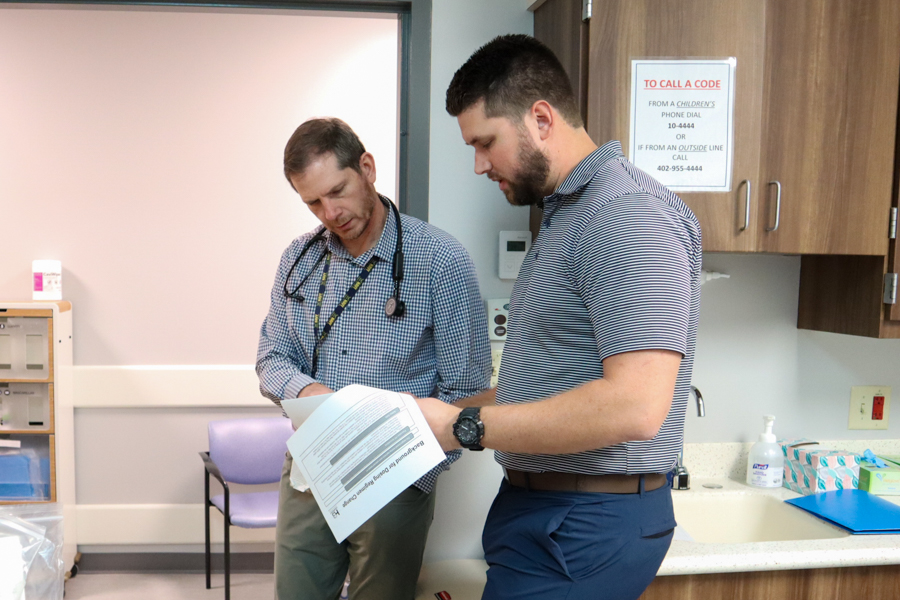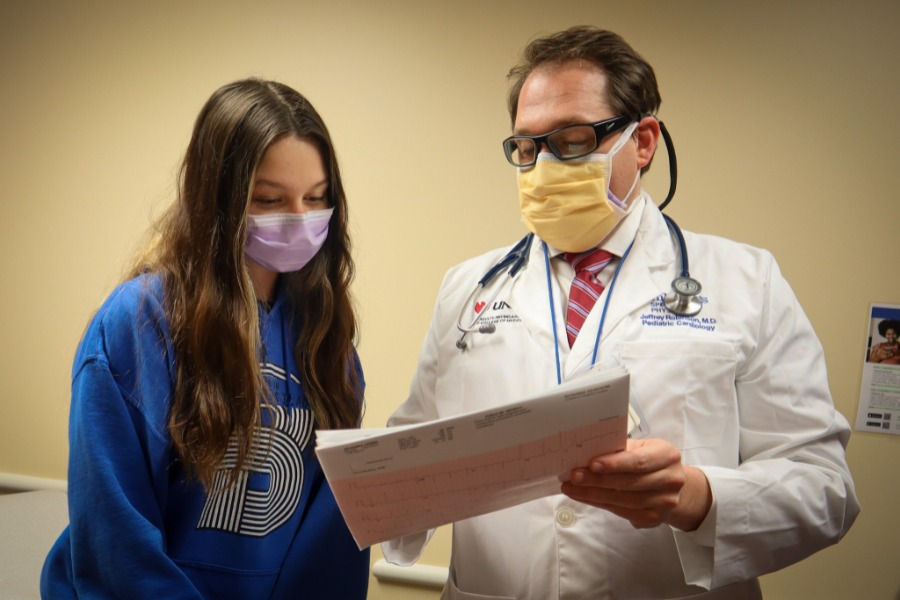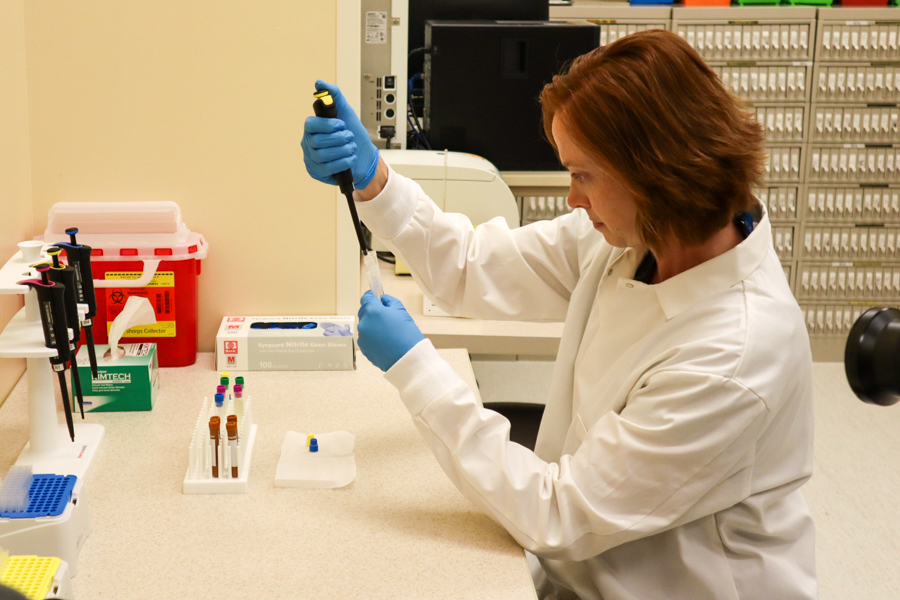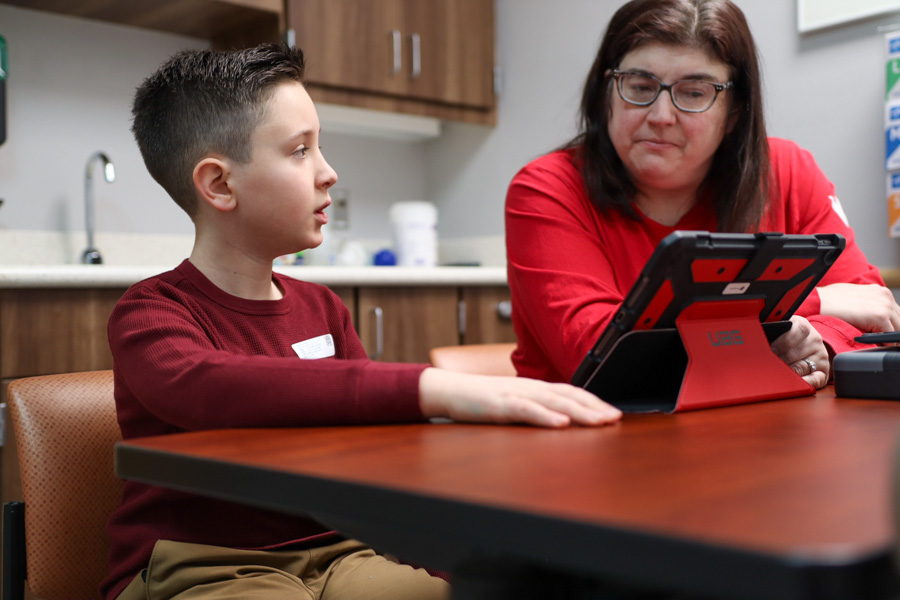PRO Resources for Clinical Research

Listed below are some of the resources for clinical research that the Pediatric Research Office (PRO) offers. Greater detail on the services below, as well as additional offerings available through the PRO, are provided within the CHRI Member Portal.
Institutional Review Board Compliance
The Pediatric Research Office team has the experience and expertise to help researches navigate the regulations around human subjects research and other study protocols. The CHRI Members Portal offers contact information and resources to help investigators understand and comply with Institutional Review Board (IRB) rules.IRB Quick Links
The links below will guide you to pages on the IRB website that are necessary to reference when creating a study.

Human Subjects Research Course
Click the link above to learn about the training required for human subjects research.

Consent Form Readability
Click the form above to access information on IRB consent form readability requirements.

PRO Standard Operating Procedures
The link above details the Pediatric Research Office's procedures for non-enrolling studies.
Emergency Use and Compassionate Use Protocols

Emergency Use
Please refer to UNMC IRB Policy #6.4 - Emergency Use of a Test Article
Definition: The use of a test article on a human patient in a life-threatening or severely debilitating circumstance where no standard medically acceptable treatment is available and there is not sufficient time to obtain full IRB approval for use of the test article to treat the patient [21 CFR 56.102(d)].
- Life-threatening: Diseases or conditions where the likelihood of death is high unless the course of the disease is interrupted.
- Severely debilitating: Diseases or conditions that would likely cause major irreversible morbidity (e.g. loss of a limb, paralysis or stroke).
- Note: A life-threatening and/or severely debilitating condition does not necessarily mean that the condition is immediately life-threatening or may imminently result in death or irreversible morbidity. Rather, the patient must be in a situation requiring prompt administration of the test article before review at a convened meeting of the IRB is feasible and any treatment delay will have a significant deleterious effect on the patient. Consequently, premature death and/or persistent morbidity are likely.
Steps to prepare an Emergency Use submission:
- Contact the sponsor of the investigational drug/device to determine ability to use for patients. Find out from the sponsor who will be submitting the Investigational New Drug (IND) application.
- Go to fda.gov and type in “Emergency Use IND” in the Search box. This will bring up guidance on the submission of an Investigational New Drug application and the contact information for the individuals at the FDA who need to be contacted by the investigator to request approval.
- Contact the Institutional Review Board as described in Section 7.0 of Policy #6.4.
- Request from IRB the emergency use consent template. To be emailed from IRB administrator.
- Collect the following documents to be submitted to the Pediatric Research Office:
- Email approval from IRB for emergency use
- Letter to IRB chair
- Signed and dated curriculum vitae
- If investigator to submit IND, collect the following documents from sponsor to be submitted to Pediatric Research Office:
- Contact information for representative at pharmaceutical company
- Letter of authorization
- Sponsor agreement/contract
- Investigational brochure and/or pharmacy manual
- Sponsor’s consent template
- Any other documents that sponsor is requiring to be completed
- Investigator to contact pharmacy regarding plan for treatment: UNMC investigational pharmacy number – Daytime #: 402-559-5255, After hours #: 402-888-3418; Children's Nebraska investigational pharmacy number – 402-955-5470 (ask for pharmacy manager on call)
- Per Policy 6.4, Section 7.6: If a test article is an investigational drug or biologic, and there is sufficient time, the treating physician must:
- Contact the Chair of the P&T Committee/designee and obtain a P&T emergency use approval (UNMC: Jon Beck will initiate the P&T review at the time of contact about the emergency use request, Children's: Investigational pharmacist will discuss with treating physician the processes for P&T review).
- Notify the Executive Director of the Pharmacy or Investigational Drug Pharmacist of the emergency use, and provide information concerning financial responsibility for the pharmacy costs of the test article.
- Upon completion of all tasks, please contact Matthew VanOrmer, PRO interim research manager, by email or at 402-559-2511.
Compassionate Use
Definition: FDA regulations at 21 CFR 312.300 (subpart I) allow certain individuals not enrolled in clinical trials to obtain expanded access to investigational drugs through various expanded access programs (EAPs). All expanded access programs must meet the basic criteria in 21 CFR 312.305(a). Specifically the FDA must determine:
1) The patient or patients to be treated have a serious or immediately life-threatening disease or condition, and there is no comparable or satisfactory alternative therapy to diagnose, monitor, or treat the disease or condition;
2) The potential patient benefit justifies the potential risks of the treatment use and those potential risks are not unreasonable in the context of the disease or condition to be treated; and 3) Providing the investigational drug for the requested use will not interfere with the initiation, conduct, or completion of clinical investigations that could support marketing approval of the expanded access use or otherwise compromise the potential development of the expanded access use.
Steps to Prepare a Compassionate-Use Submission:
- Contact the sponsor of the investigational drug/device to determine ability to use for patients. Find out from the sponsor who will be submitting the Investigational New Drug/Device (IND) application.
- Go to fda.gov and type in “Compassionate Use IND” in the Search box. This will bring up guidance on the submission of an Investigational New Drug application.
- Collect the following documents to be submitted to the Pediatric Research Office:
- Email approval from IRB for emergency use
- Letter to FDA.
- Signed and dated curriculum vitae
- If investigator to submit IND, collect the following documents from sponsor to be submitted to Pediatric Research Office:
- Contact name for representative at pharmaceutical company
- Letter of authorization
- Sponsor agreement/contract
- Investigational brochure and/or pharmacy manual
- Sponsor’s consent template
- Any other documents that sponsor is requiring to be completed
- Upon completion of all tasks, please contact Matthew VanOrmer, PRO interim research manager, by email or at 402-559-2511.